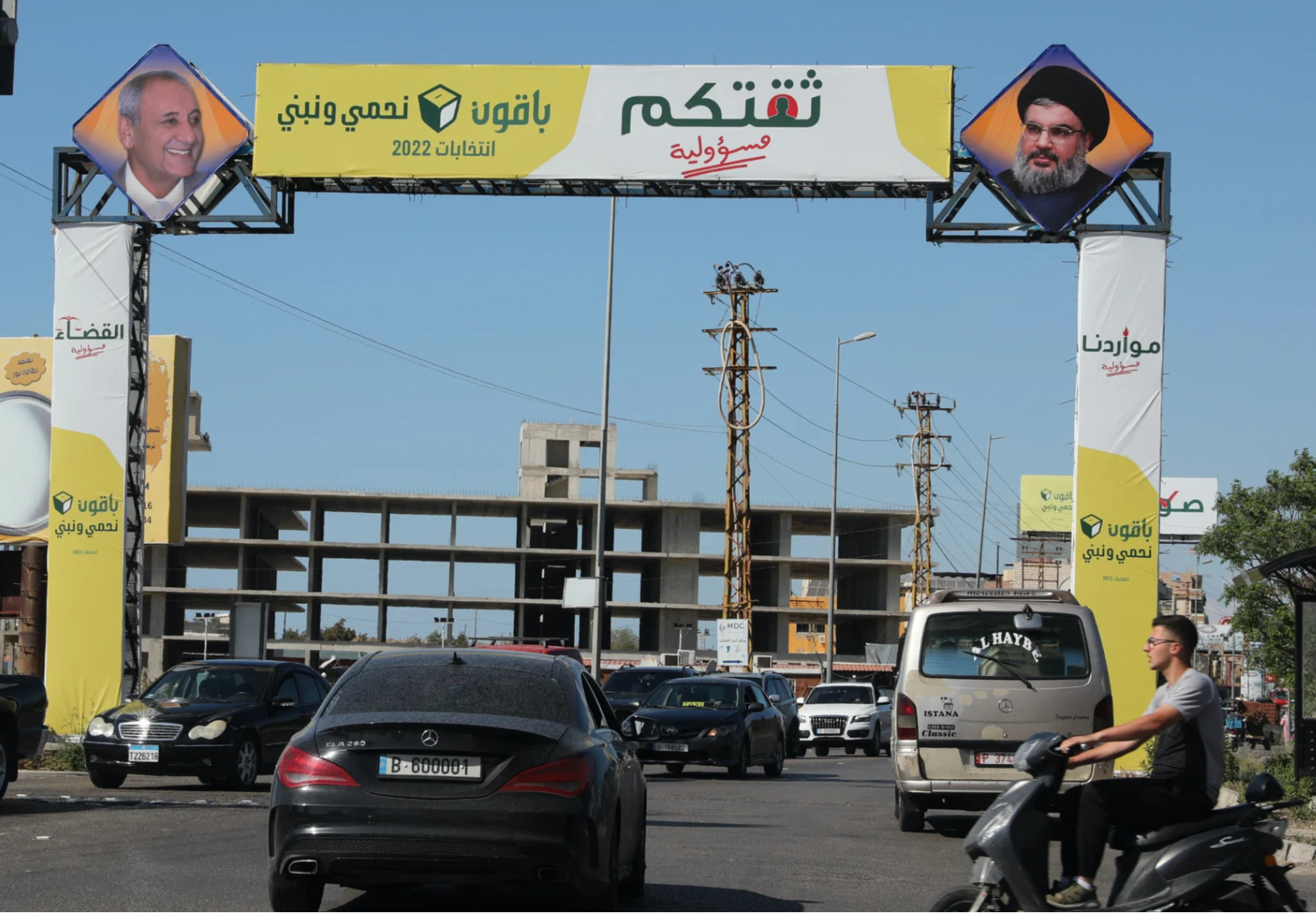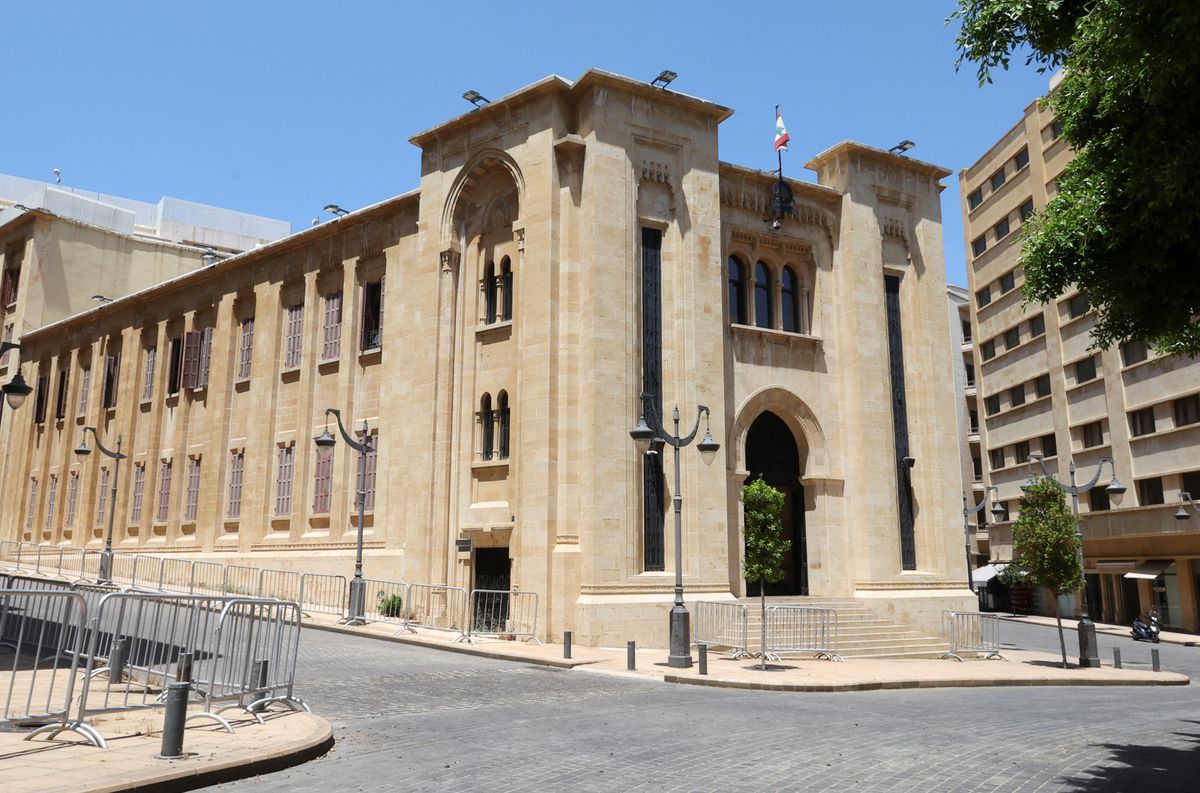
@AzziSejean
رَبِـحْتم، ربِّـحوا البلد. خَسِرتُم، لا تُـخَسِّروا البلد. عظمةُ الديمقراطيّةِ أنّها تساوي في المسؤوليّةِ الرابِـحين والخاسِرين. للأوّلين تَقول الديمقراطيّةُ: "كونوا متواضِعين في انتصارِكم وحُكْمِكم"، وللآخرين: "كونوا نبلاءَ في خَسارتِكم ومعارضَتِكم". لحظةُ الانتصارِ أربعٌ وعشرون ساعةً تتبدّدُ بعد النشوة، ولحظةُ المسؤوليّةِ أربعُ سنواتٍ تبقى للمحاسَبةِ أربعينَ سنة. لا تَبحثوا عن الأكثريّةِ الفعليّةِ في المجلسِ النيابي، فهي موجودةٌ في مكانٍ آخَر، في الّذين قاطَعوا الانتخابات.
الفائزون والخاسرون في انتخاباتِ 15 أيار يُمثّلون معًا نحو 41% فقط من الشعب، بينما المقاطعون يُمثّلون وَحدَهم نحو 59%. لكنَّ دورَ المجلسِ النيابيِّ الجديدِ ــــ وهو كاملُ الشرعيّة ــــ أن يُجسِّدَ صوتَ المقترِعين وصوتَ المقاطِعين لأنَّ المقاطعةَ هي صوتٌ مُمتَنعٌ. المقترِعون والمقاطِعون يَنتمون إلى الاتّجاهاتِ السياسيّةِ ذاتِها. طرفٌ فَضَّلَ التعبيرَ عن موقفِه اقتراعًا وآخَرُ ارْتأى التعبيرَ عنه امتناعًا. ليس هذا الواقعُ سِمةَ الحياةِ السياسيّةِ اللبنانيّةِ وحدها، فهو يَنتشرُ في غالِبيّةِ الديمقراطيّاتِ الذابِلةِ حيث الشعوبُ لا تأمَلُ جديدًا من أنظمتِها.
MP Farid Haykal el Khazen stressed after his visit to his Eminence the Cardinal Maronite Partriarch Bechara el Rai the national constants …

Beirut, Lebanon (CNN) Tamara Qiblawi -- Iran-backed Hezbollah lost its parliamentary edge in a high-stakes election last weekend. For Lebanon, this could mean everything, or nothing at all. The country's new parliament remains largely split between pro-Iran and pro-Saudi blocs. Hezbollah still commands the largest single parliamentary bloc and the new political makeup signals that the country is headed, yet again, for a costly stalemate. Yet within those apparently immutable divisions, important political shifts have taken place. Reformists from outside Lebanon's traditional political establishment won around 10% of the seats. The reformists dislodged, if marginally, the dominance of an old political elite. This worked against Lebanon's most powerful political party. When Hezbollah's bloc lost a majority that underpinned the last four years of Lebanese politics, it was an unusual setback.
The group had gotten used to victory over the years. In 2000, it drove Israeli forces out of southern Lebanon after 22 years of occupation. In 2006, it held its ground in a war against Israel when Israel sought to disarm the group. During Syria's civil war, it successfully intervened on behalf of Syrian President Bashar al-Assad and helped bolster his defenses after the dictator violently quashed a popular uprising against his rule. The group's political influence appeared to be on a relentless rise, despite a domestic bid — backed by Saudi Arabia — to curb the group's power that was rapidly extending beyond Lebanon. But the weekend's election marked a reversal of fortunes. While the parliamentary makeup of Hezbollah and its Shia ally, Amal, remains intact, a number of the group's allies were unseated or beaten, mostly by reformists.
Analysts said this pointed to a loss in the group's once formidable mobilization power. This could be a sign of growing frustration among Hezbollah's constituents with the way it has handled a devastating economic crisis -- and its increasingly heavy-handed intimidation tactics against dissent, including its attempts to stifle an investigation into Beirut's 2020 port blast. It is unclear how Hezbollah will respond to these losses, or how the country's new parliament will chart its course forward amid a financial tailspin. Those in parliament who oppose Hezbollah are an inchoate cluster of parties and independent candidates, with the Saudi-allied right-wing Christian Lebanese Forces (LF) representing the largest parliamentary bloc among them. The LF is a civil war-era militia-turned-political party, a far cry from the change that the masses called for when nationwide demonstrations engulfed the country in October 2019.

By AJ Naddaff -- middleeasteye.net -- Lebanon's first elections since the country was devastated by its worst-ever economic crisis have unseated household names in Lebanese politics, shifted majority blocs, and yielded a surprising breakthrough for independents. Middle East Eye takes a look at some of the elections' most notable winners and losers.
Hezbollah-Amal's prominent allies
While Hezbollah and their Amal Movement ally retained their dominance of Shia representation in parliament, some of their longtime Christian, Sunni and Druze allies lost their seats. The most prominent among the Hezbollah-allied unseated MPs is Talal Arslan. The Druze politician, hailing from one of Lebanon’s oldest political dynasties, was first elected in 1992. The prince of Druze Feudalism, known as the emir in Arabic, lost his seat in the Mount Lebanon IV constituency to Mark Daou, a newcomer campaigning on a reform agenda. Elie Ferzli, the longtime Greek Orthodox deputy speaker of parliament, is also a veteran MP who was defeated in the Bekaa II constituency. He lost to one of the more controversial opposition-backed candidates: Yassin Yassin. Scepticism surrounds Yassin, a millionaire who purchased some of former prime minister Saad Hariri’s old businesses yet presents himself as anti-establishment. In the north, Syria-aligned Faisal Karami, the heir of an influential political family in northern Tripoli, failed to get re-elected for a second term in parliament, although his list still won three seats. Karami’s father, Omar, served two terms as premier when Faisal was young.
New Christian majority on the block
Khazen History


Historical Feature:
Churches and Monasteries of the Khazen family

St. Anthony of Padua Church in Ballouneh
Mar Abda Church in Bakaatit Kanaan
Saint Michael Church in Bkaatouta
Saint Therese Church in Qolayaat
Saint Simeon Stylites (مار سمعان العامودي) Church In Ajaltoun
Virgin Mary Church (سيدة المعونات) in Sheilé
Assumption of Mary Church in Ballouneh
1 - The sword of the Maronite Prince
2 - LES KHAZEN CONSULS DE FRANCE
3 - LES MARONITES & LES KHAZEN
4 - LES MAAN & LES KHAZEN
5 - ORIGINE DE LA FAMILLE
Population Movements to Keserwan - The Khazens and The Maans
ما جاء عن الثورة في المقاطعة الكسروانية
ثورة أهالي كسروان على المشايخ الخوازنة وأسبابها
Origins of the "Prince of Maronite" Title
Growing diversity: the Khazin sheiks and the clergy in the first decades of the 18th century
Historical Members:
Barbar Beik El Khazen [English]
Patriach Toubia Kaiss El Khazen(Biography & Life Part1 Part2) (Arabic)
Patriach Youssef Dargham El Khazen (Cont'd)
Cheikh Bishara Jafal El Khazen
Patriarch Youssef Raji El Khazen
The Martyrs Cheikh Philippe & Cheikh Farid El Khazen
Cheikh Nawfal El Khazen (Consul De France)
Cheikh Hossun El Khazen (Consul De France)
Cheikh Abou-Nawfal El Khazen (Consul De France)
Cheikh Francis Abee Nader & his son Yousef
Cheikh Abou-Kanso El Khazen (Consul De France)
Cheikh Abou Nader El Khazen
Cheikh Chafic El Khazen
Cheikh Keserwan El Khazen
Cheikh Serhal El Khazen [English]
Cheikh Rafiq El Khazen [English]
Cheikh Hanna El Khazen
Cheikha Arzi El Khazen
Marie El Khazen